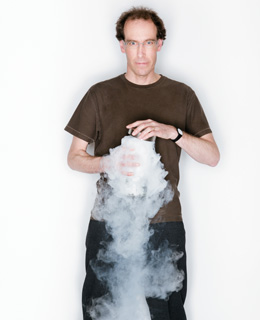
"It's about tools." that's how David Keith sums up his contribution to climate-change research. It sounds quite modest, and Keith, a balding but boyish 45-year-old professor at the University of Calgary, can be disarmingly modest, in an intense, very bright, very Canadian sort of way. But the tools he is researching are immodest in the extreme: planet-size ideas for planet-size problems. The fact that geoengineering schemes — intervening in the climate by shielding the earth's surface from trillions of watts of sunshine, or sucking billions of tons of carbon dioxide out of the atmosphere — have started to get serious attention from policymakers is in large part due to Keith's work looking at what such tools can do, and what it might mean to use them.
Keith is a physicist, with a physicist's love for looking deep into causes and for mathematically quantifying effects. But early success in pure physics (his graduate project, supervised by a professor noted for his mentoring of future Nobelists, was a long-awaited experimental breakthrough in atomic optics) did not satisfy him. Climate work promised a greater opportunity to do good while at the same time throwing up what ambitious physicists always want most: questions no one yet knows the answers to.
Soon he was working on nitty-gritty climate-modeling problems while learning economic and policy analysis. That breadth has helped him communicate climate concerns to the often skeptical energy industry; it's also part of why he is listened to by people like Bill Gates, who relies on meetings organized by Keith to stay up-to-date on climate science. "While he's got informed and strong opinions," Gates says, "he's also incredibly open-minded, pointing out the unknowns in his opinions and just as readily pointing out the merits of others' opinions."
That balance helps. Keith is keen to stress that geoengineering is no alternative to reducing carbon emissions, but insists that it should be researched as a possible aid. While it excites him as a technologist and fascinates him as a policy wonk, he remains an analyst, not an advocate. The thing about tools, he says, "is not that you have to use them: it's that you have to understand them."
Oliver Morton is the former Chief News and Features Editor of Nature; he is writing a book about geoengineering.